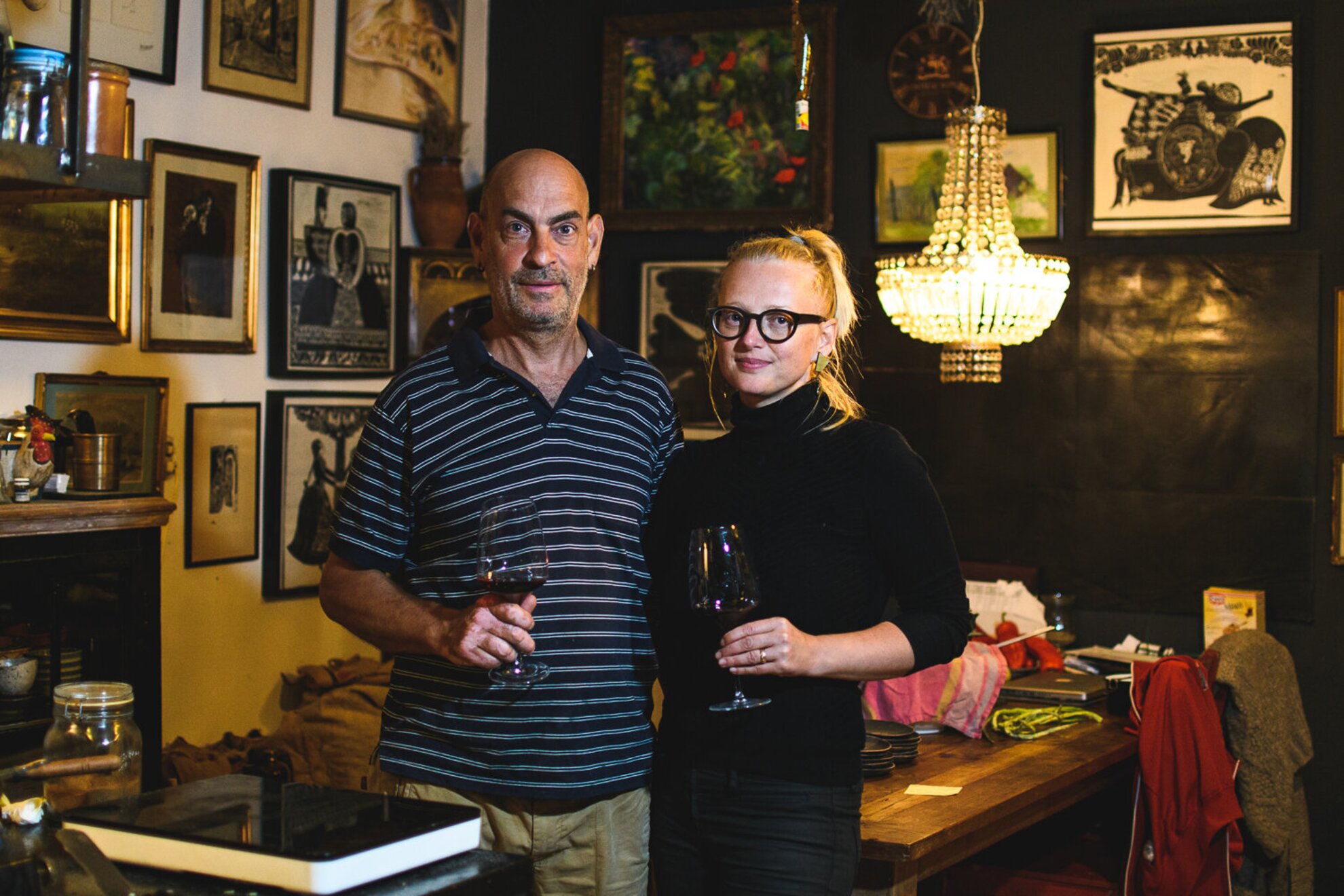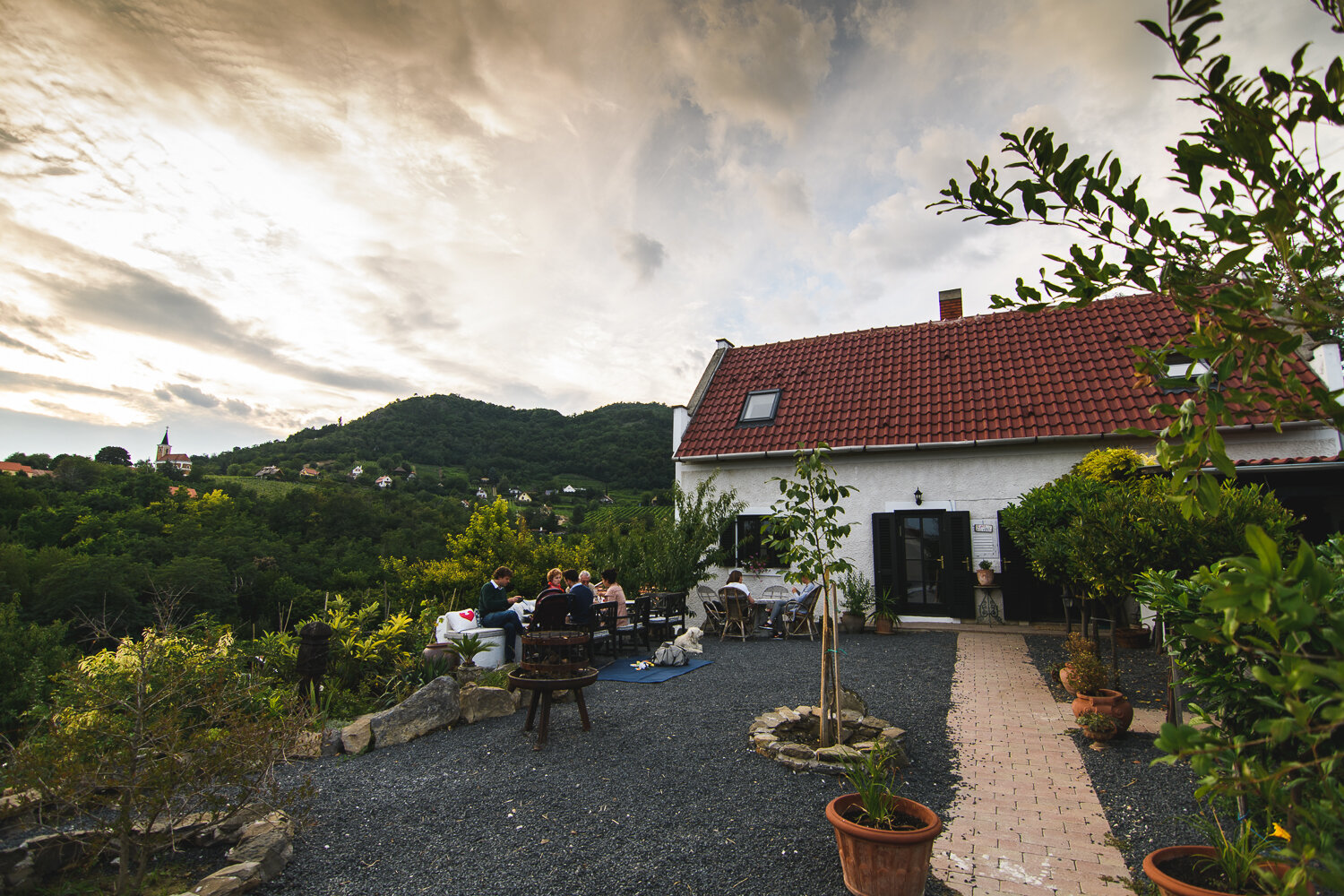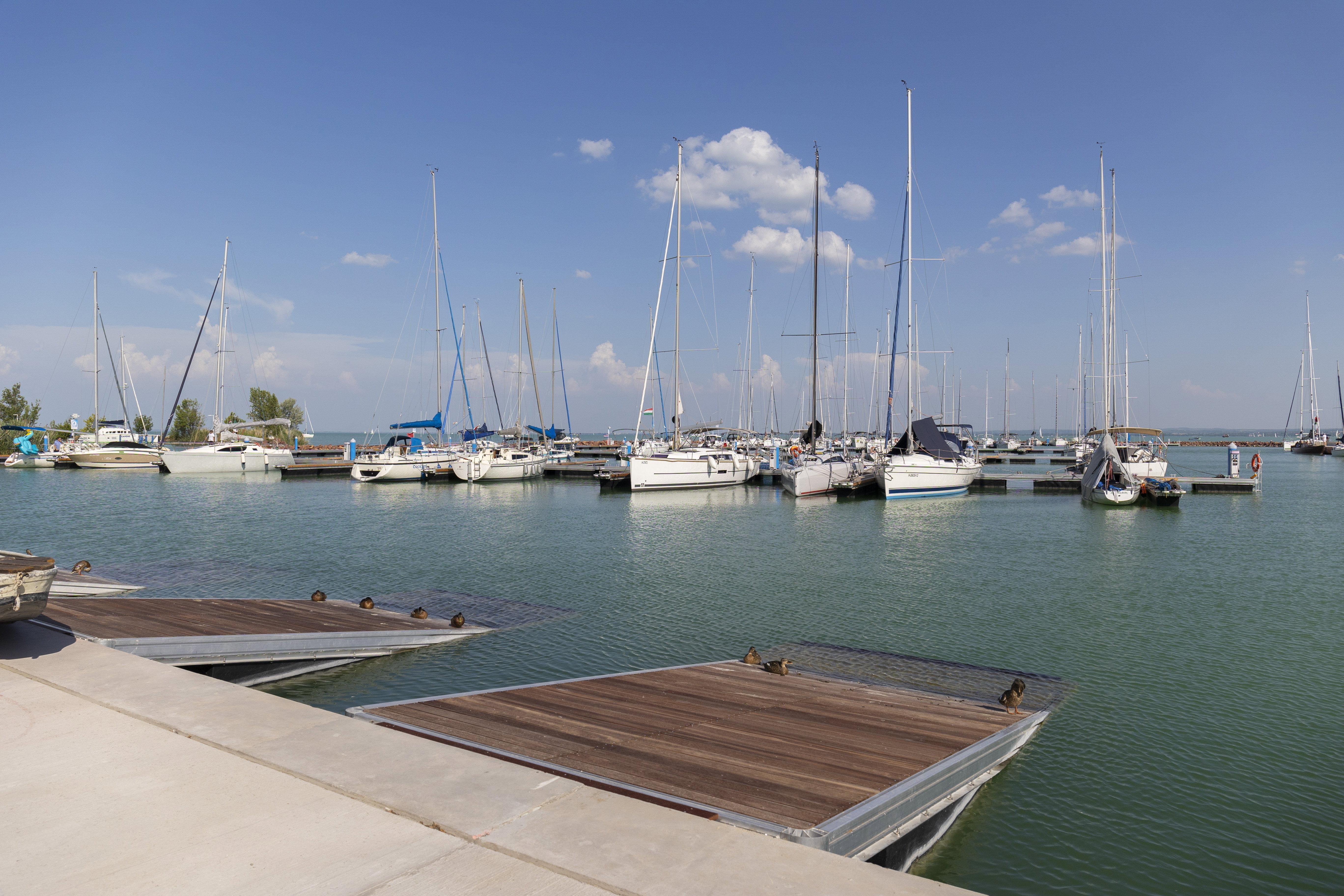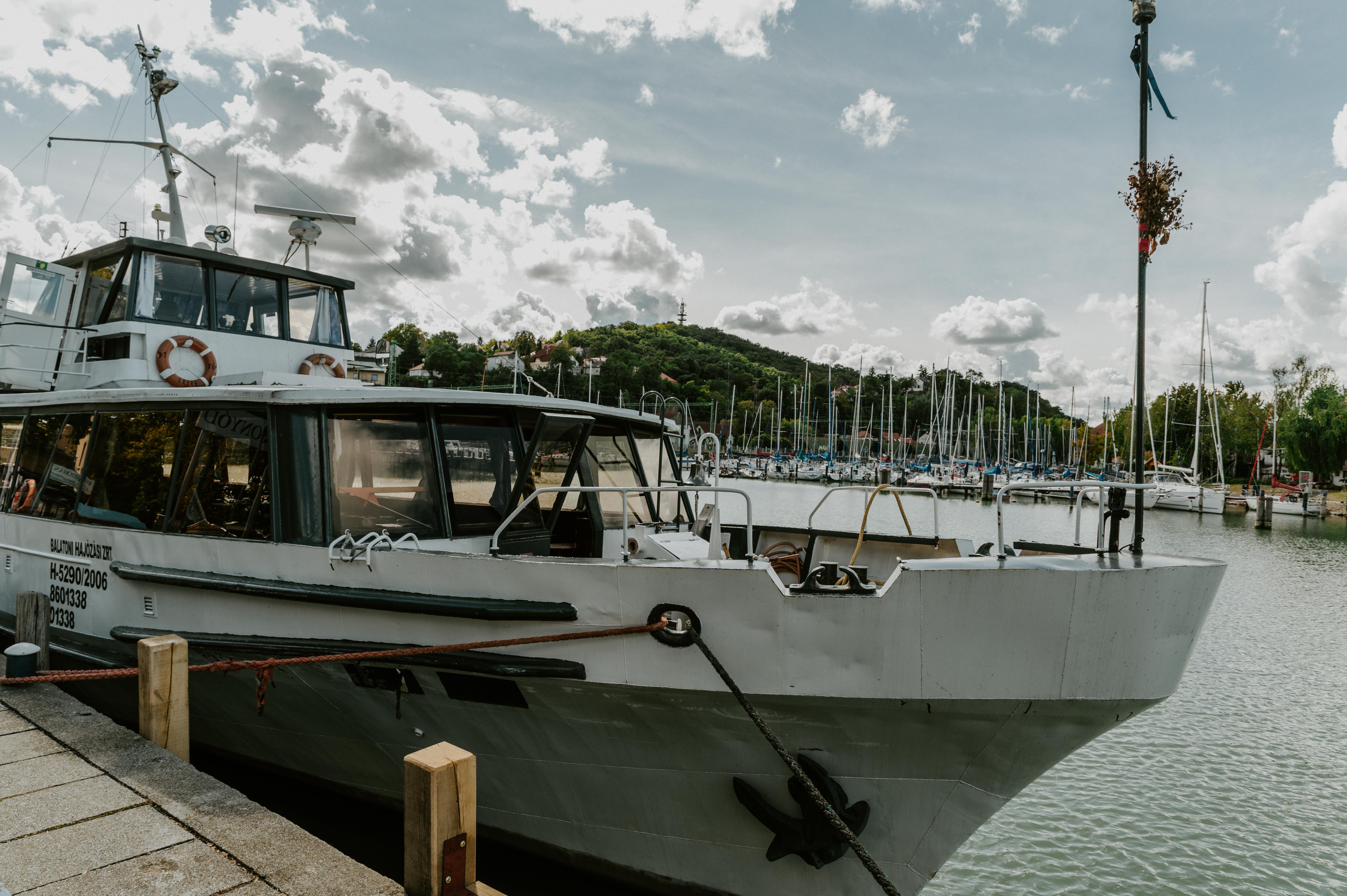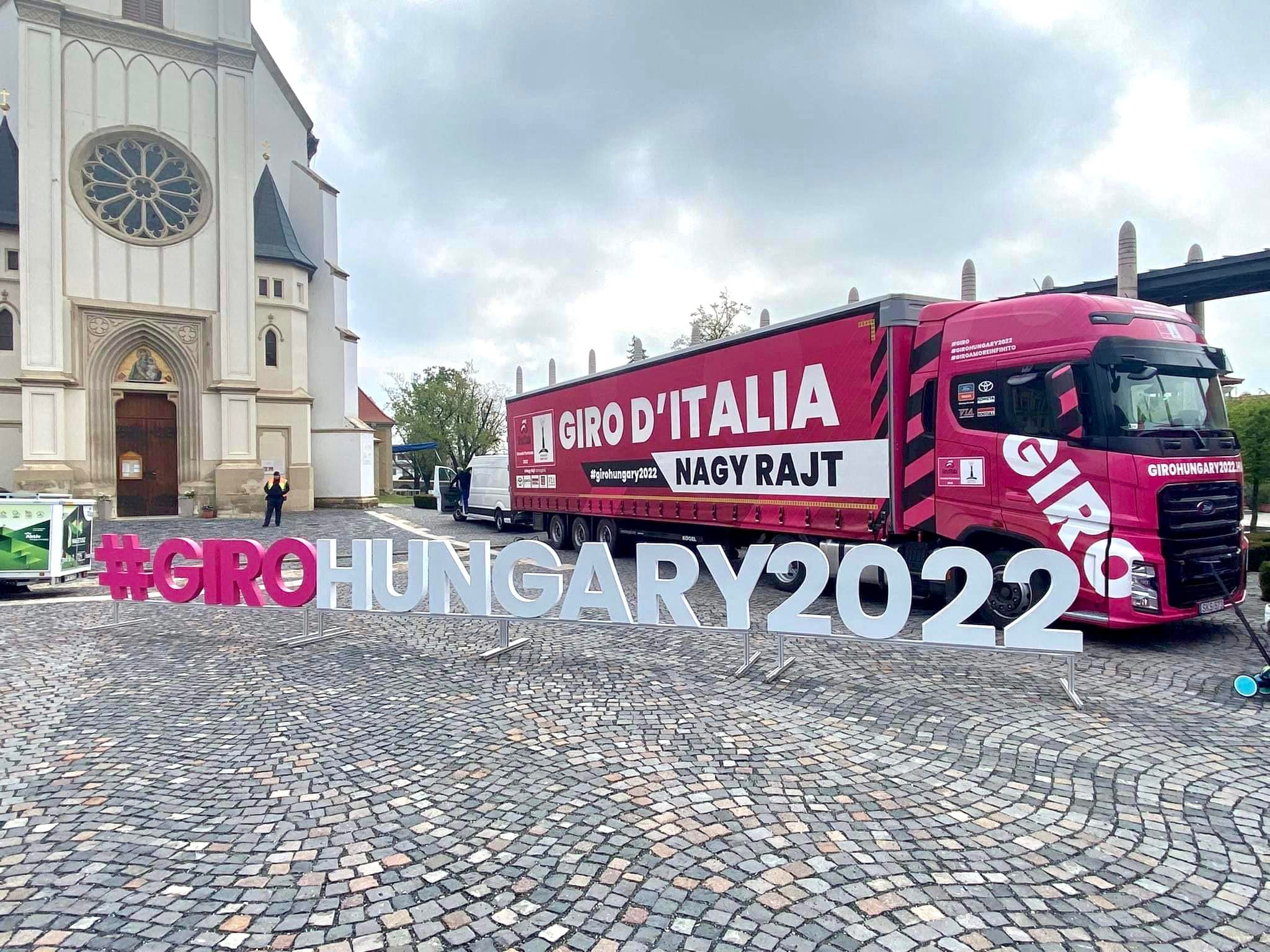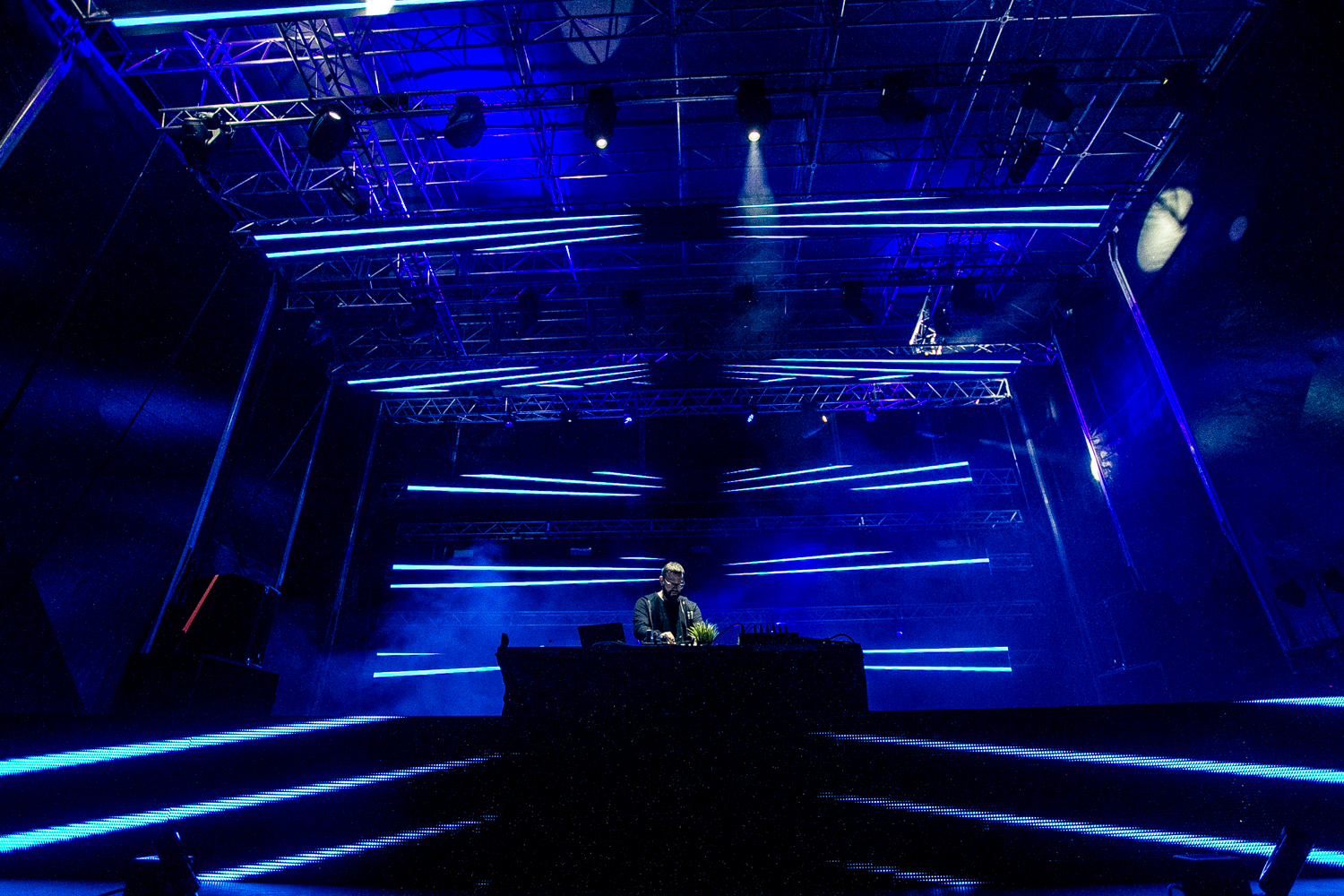“We were half-full the first night, and we thought well, that’s great. We had a full house the next day, and we panicked,” says Áron Molnár (mostly known as Papa Áron by the locals) about their opening, when the first guests had the chance to taste exotic bites at the terrace of the house at Szent György-hegy. They’ve been only open for three weeks when we were there, yet they already had reservations lined up for weeks in advance. Their address is simply a lot number, but fortunately the GPS guides us to them. The word about this place travels around.
We heard before that Papa Áron is a good cook: together with his partner, Karina, they’ve been selling their chutneys, zacuscăs, Eastern pickled goods, sauces, and other various goods made with vegetables from their garden at the market of Káptalantóti. They also organized dinners at one of the cellars on the hill, where Papa Áron provided not only the meals but also the DJ-set. Then they took the step they were planning on for years, and opened their little kitchen at the terrace of their own house.
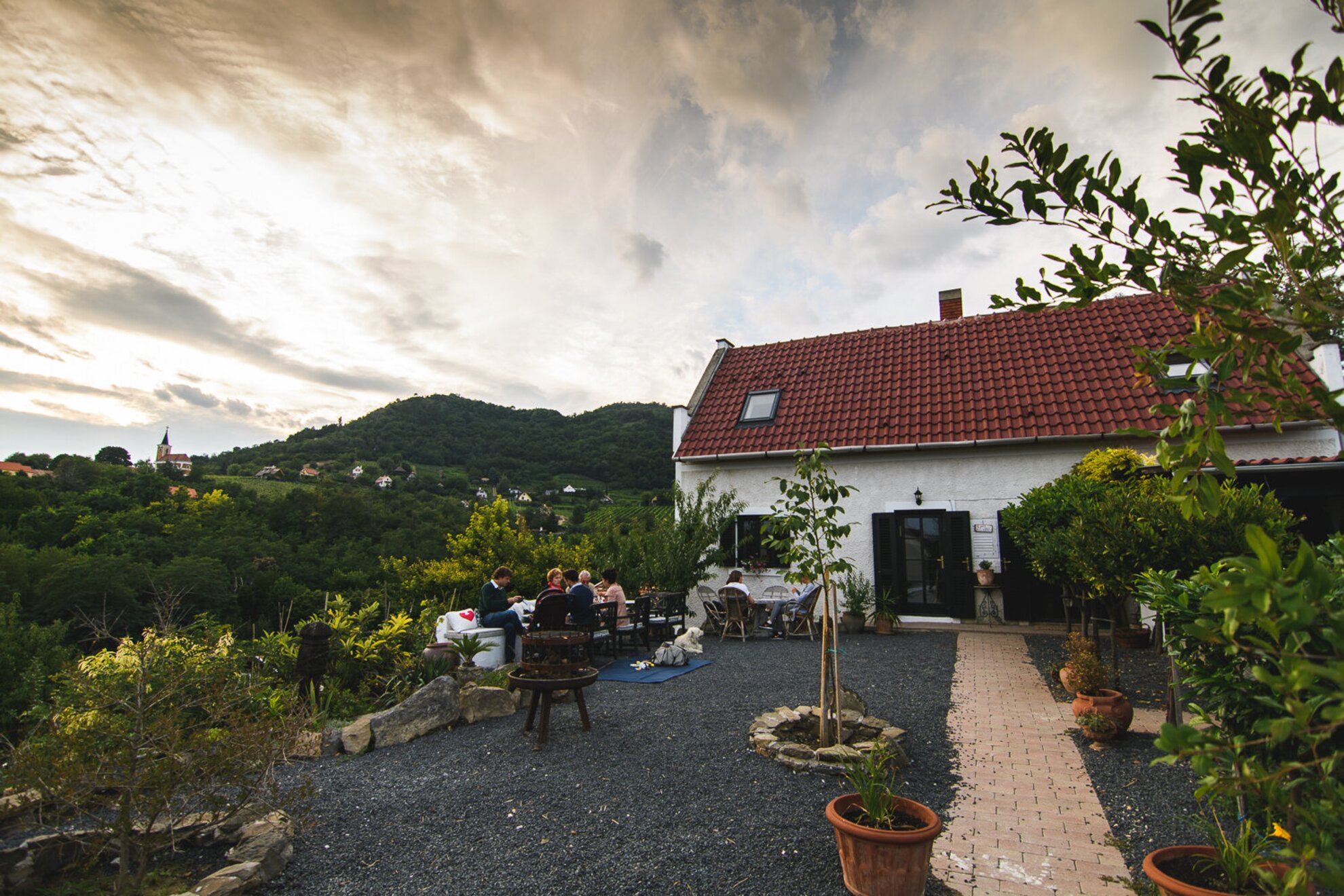
The meals they serve are the type of meals they have themselves as well. They are among those lucky vegetarians whose daily diet is more than just cabbage pottage or pasta with potato – instead they have Harappan curry (spicy yogurt sauce with grilled eggplant, 900 HUF), or homemade paneer cheese served with rice and vegetables in tamarind sauce (900 forints).
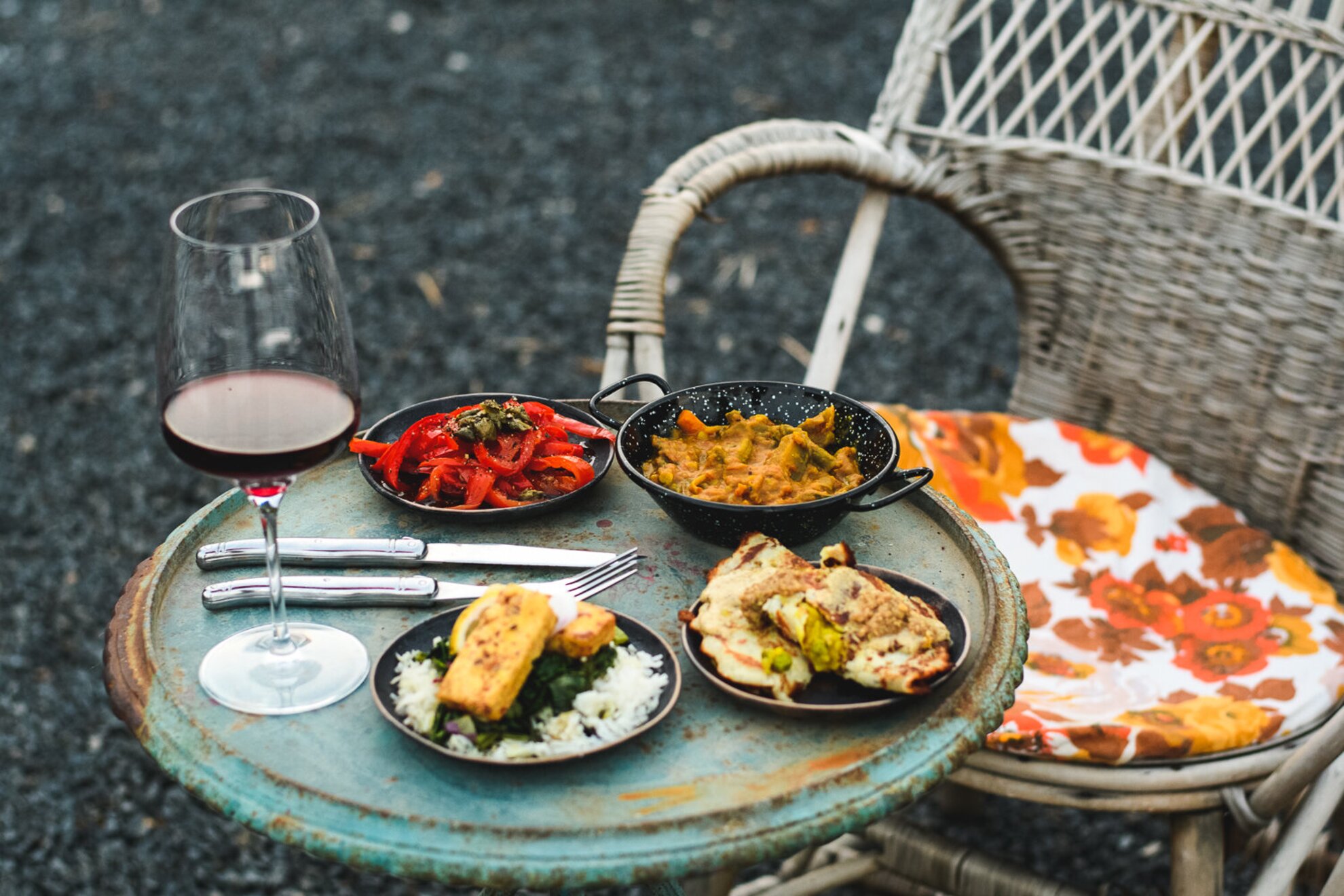
Tapas from the garden
Due to the size of the plates, the Indian, Middle Eastern, Mediterranean, and Arab courses are called tapas. Those who are really hungry can fill their bellies with three portions, those with an average appetite will feel full after two, and, just like in Eastern countries, we can try more than one at the same time. The plate might seem small at first glance, but the flavor of the meals is so rich and complicated that we will surely won’t stay hungry, not to mention that eating here will spare our wallets as well (the cheapest course is 500 forints, while the most expensive one is 1,200 forints). “We make sure that locals can afford the prices. We didn’t target the tourists, because that’s not sustainable in the long run. We live here all year round.”
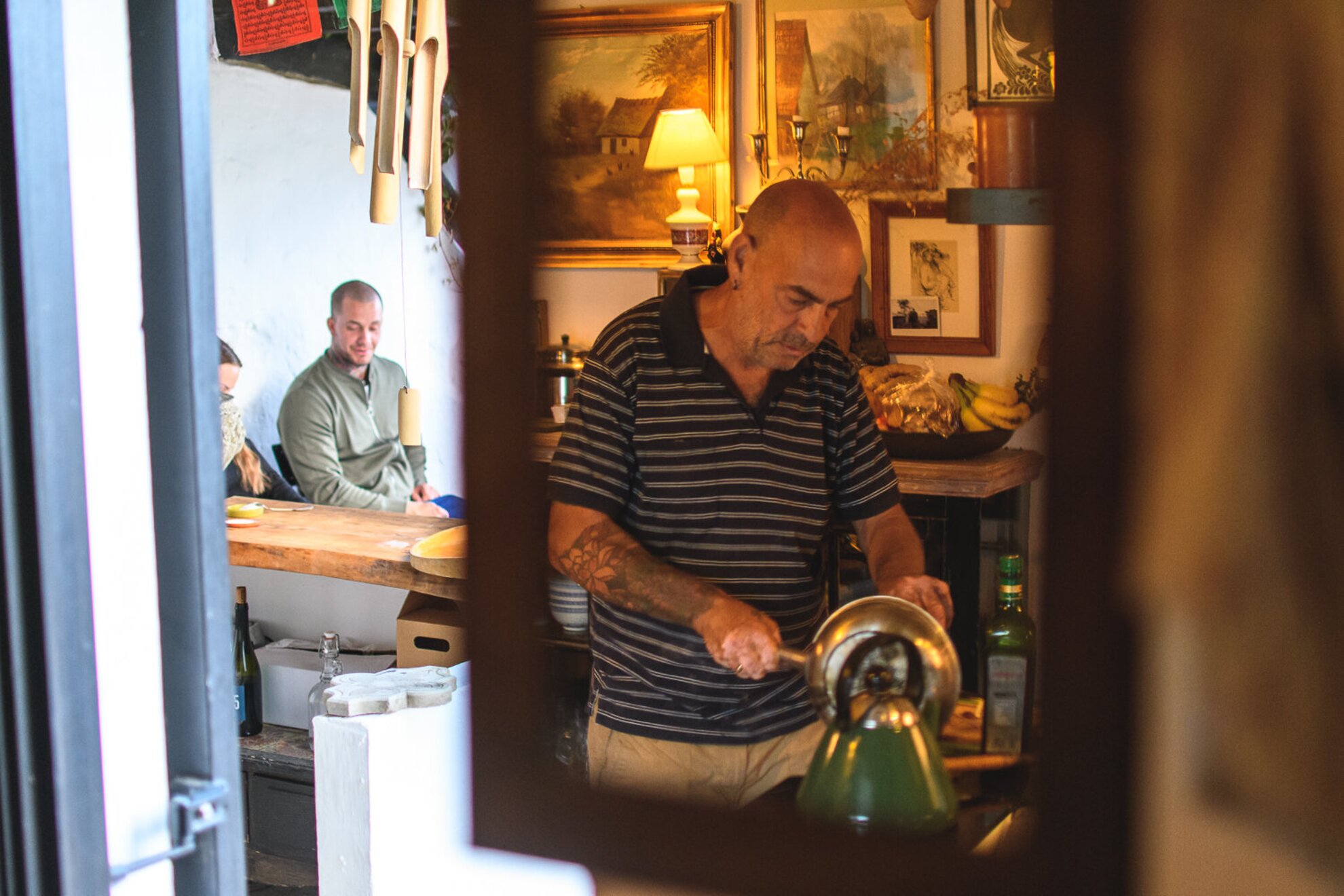
All of their courses are vegetarian or vegan because Karina and Áron have been leading a vegetarian lifestyle for years. Plus the garden next to the house is really lush, and it keeps giving vegetables. The selection has seasonal items – eggplant, chard, paprika, tomato, zucchini, – and they have dahl made from lentils, potato with tahini and Harissa, spicy Indian pilau, and grilled Padrón peppers.
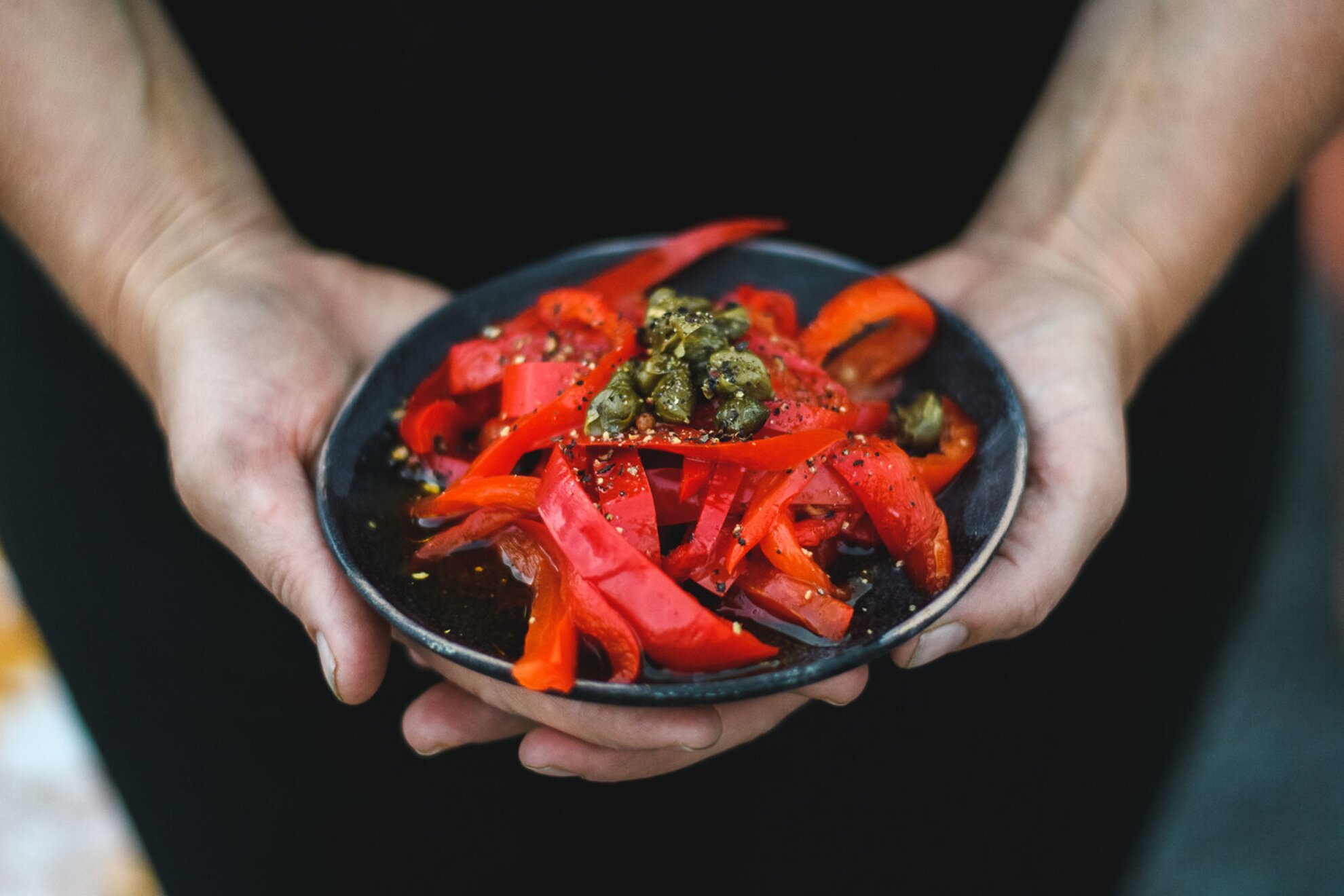
They have help but otherwise their restaurant is only operated by them: Áron works in the kitchen, while Karina serves, and recommends their own wines with the meals, including Wielschriesling, Pinot Noir, and Pinot Gris (a glass costs between 300-500 forints), or the champagne of Csaba Török (2HA Vineyard) for 5,000 HUF per bottle.
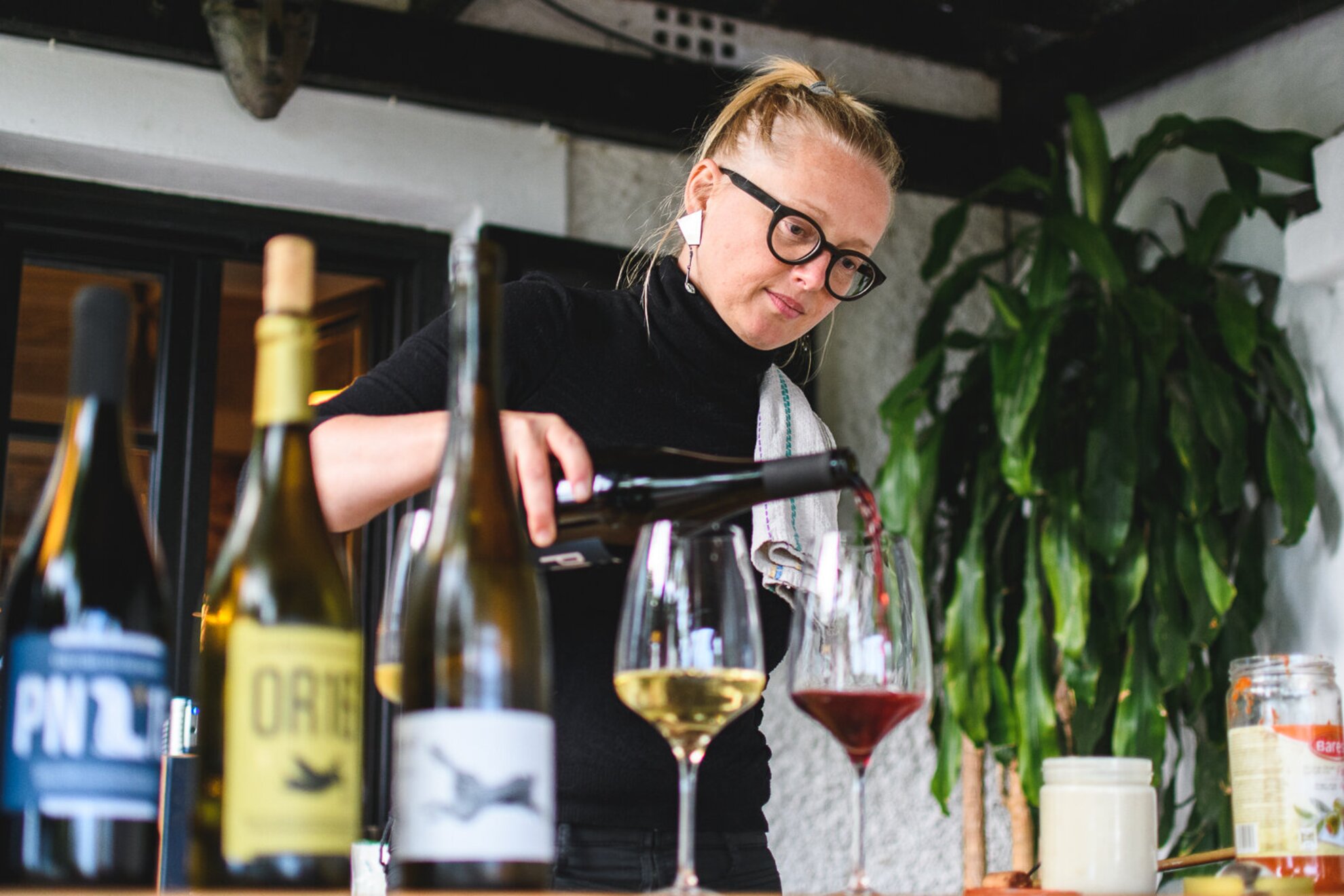
This isn’t Greece, it’s Szent György-hegy
They are only open on Thursday, Friday, and Saturday, because they are busy with winemaking during the rest of the week. The atmosphere is homely, which means that they have limited space and we have to make a reservation in advance. The plan is that they stay open until the weather is nice, and then we will be able to sit down at the large table in their kitchen in winter.
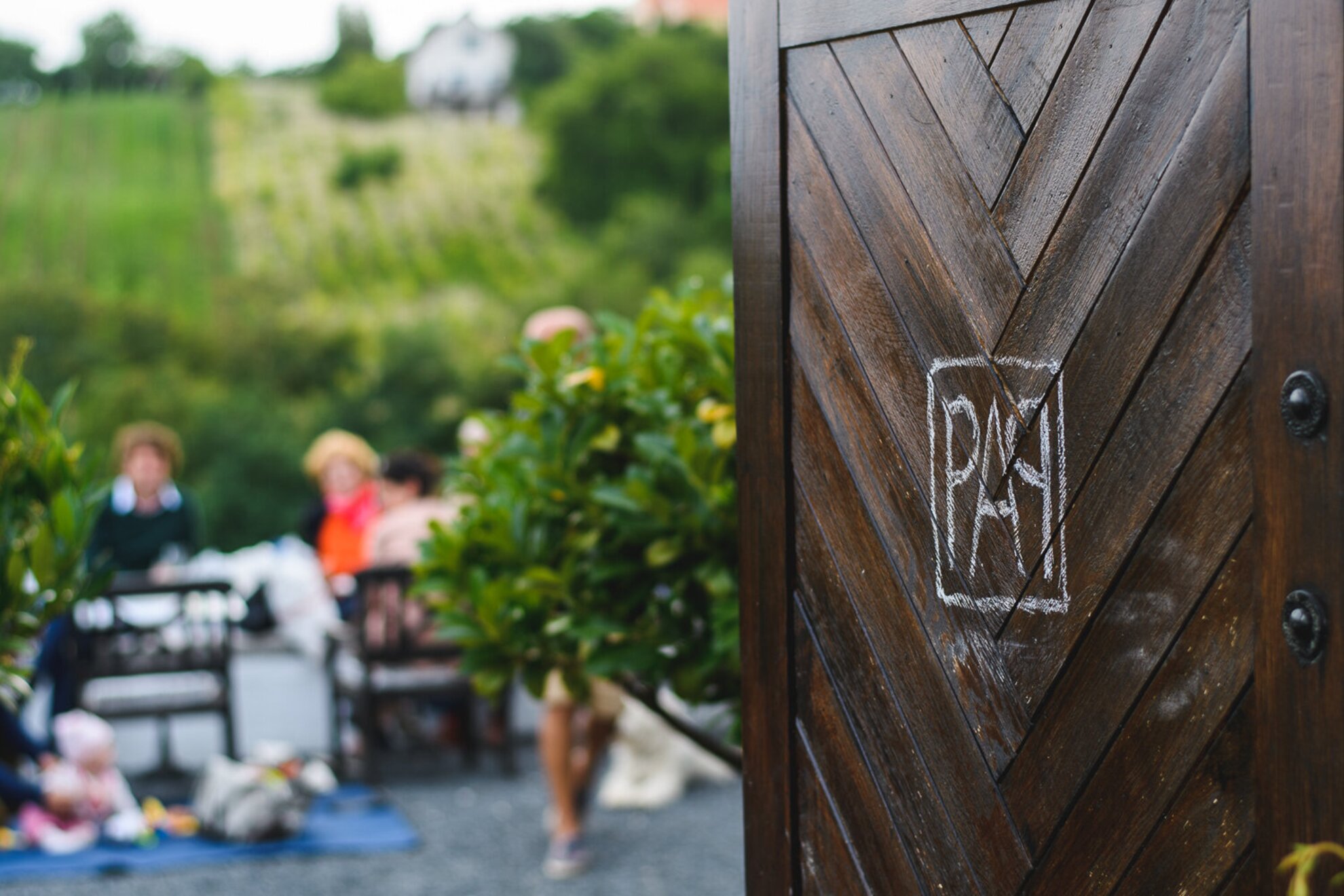
In summer the roof is made of countless stars while Badacsony, the hills, the vineyards of Szent györgy-hegy, and Lengyel Chapel are the decoration. They host the guests on their own terrace, just like they do at apartment restaurants. The whitewashed rustic terrace-wall harmonizes with the environment and it was called Greek, Mediterranean, and even Scandinavian-styled, but, as Karina puts it, the truth is that “it’s simply nice, a style typical of Szent György-hegy”.

Maybe those who visit like to compare the place to others because what else could the home of a world-travelling couple be? The half English, half Hungarian Áron met Latvian Karina in Copenhagen; she was studying design theory and philosophy. Áron previously lived in India for years – since then they’ve been going back there together – while before that he was traveling around Europe for five years. He got to know French winemaking during these travels.
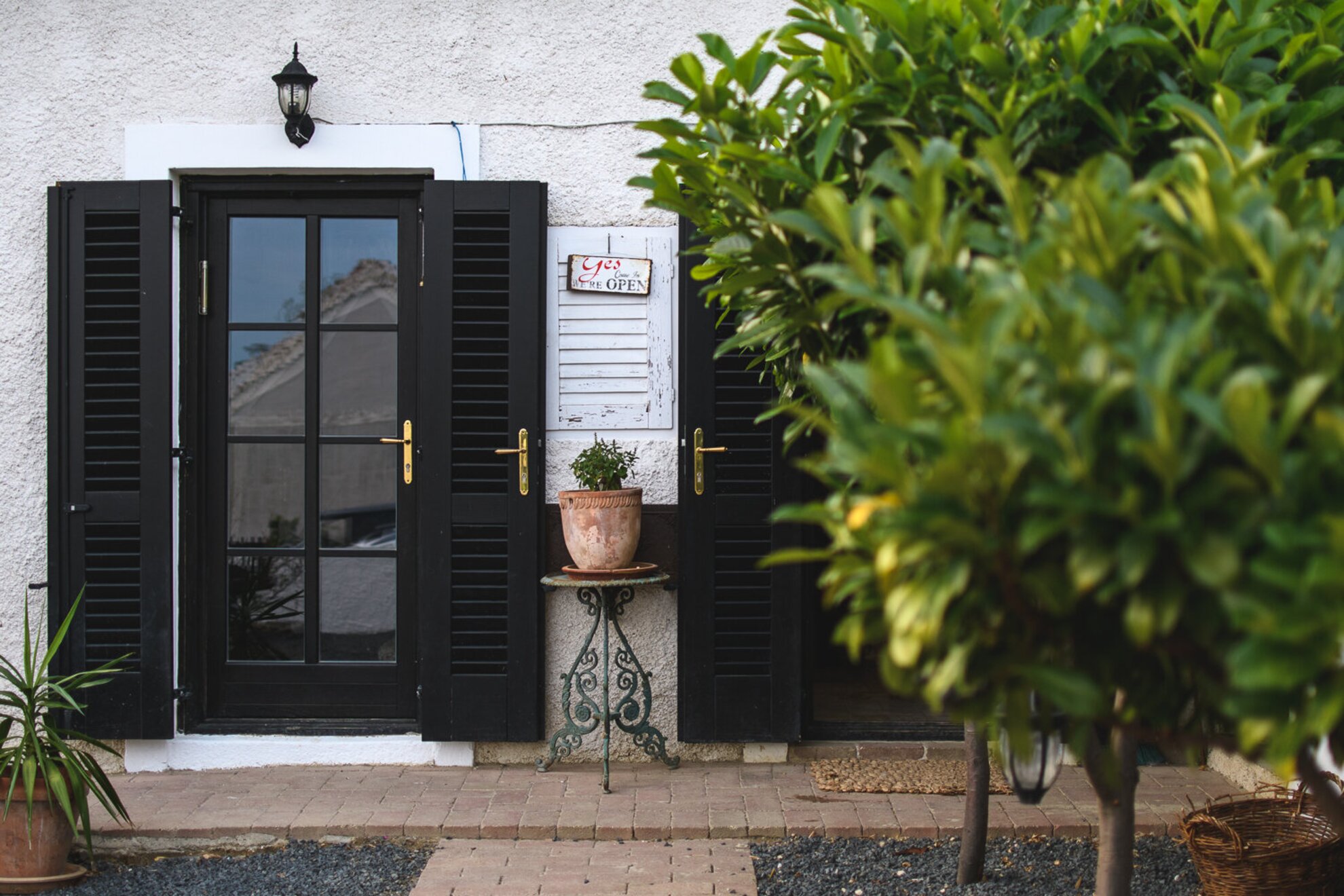
What the eyes fear, the hands do
“We wanted something that’s ours,” says Karina when talking about why they left Denmark. It’s hard to start a business there and you can easily get carried away: you need a larger car, a larger apartment, an even more modern kitchen. “We got carried away, too,” adds Áron. They found the Danish everyday life soulless after a while, and they wanted to do their own thing, whatever that may be. They weren’t afraid of starting something new, and Karina is reminded of an old saying: what the eyes fear, the hands do. Once you start, your hands will follow.
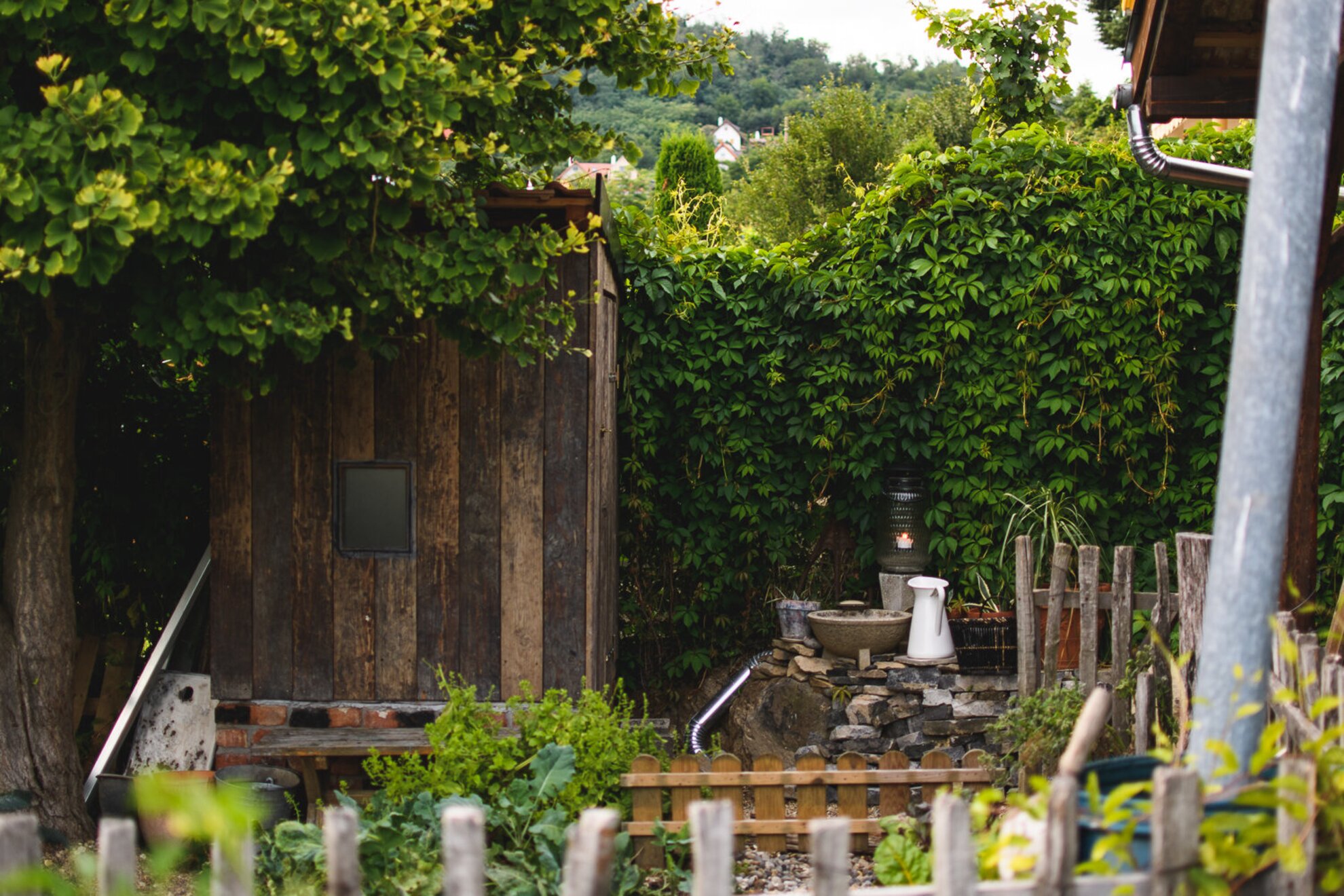
People told Áron for years that he should open a restaurant because his cooking is really good. When they moved to Szent György-hegy seven years ago, it was already planted in their brain, but they stumbled upon too many hardships. “If Áron reads a book, it’s a cookbook, and he plans dinner during breakfast,” said Karina about their everyday life. He was born into a family that worked in the hospitality industry: for decades his mother was managing Gay Hussar, the legendary Hungarian restaurant of London’s Soho, while his graphic designer father was working there as the headwaiter after he left the country in 1956. Later they opened a Hungarian restaurant in the upscale district of Hampstead called the Molnar’s. They spent the summers at Balaton’s Ábrahámhegy, so Áron’s bond to the region is old and strong.
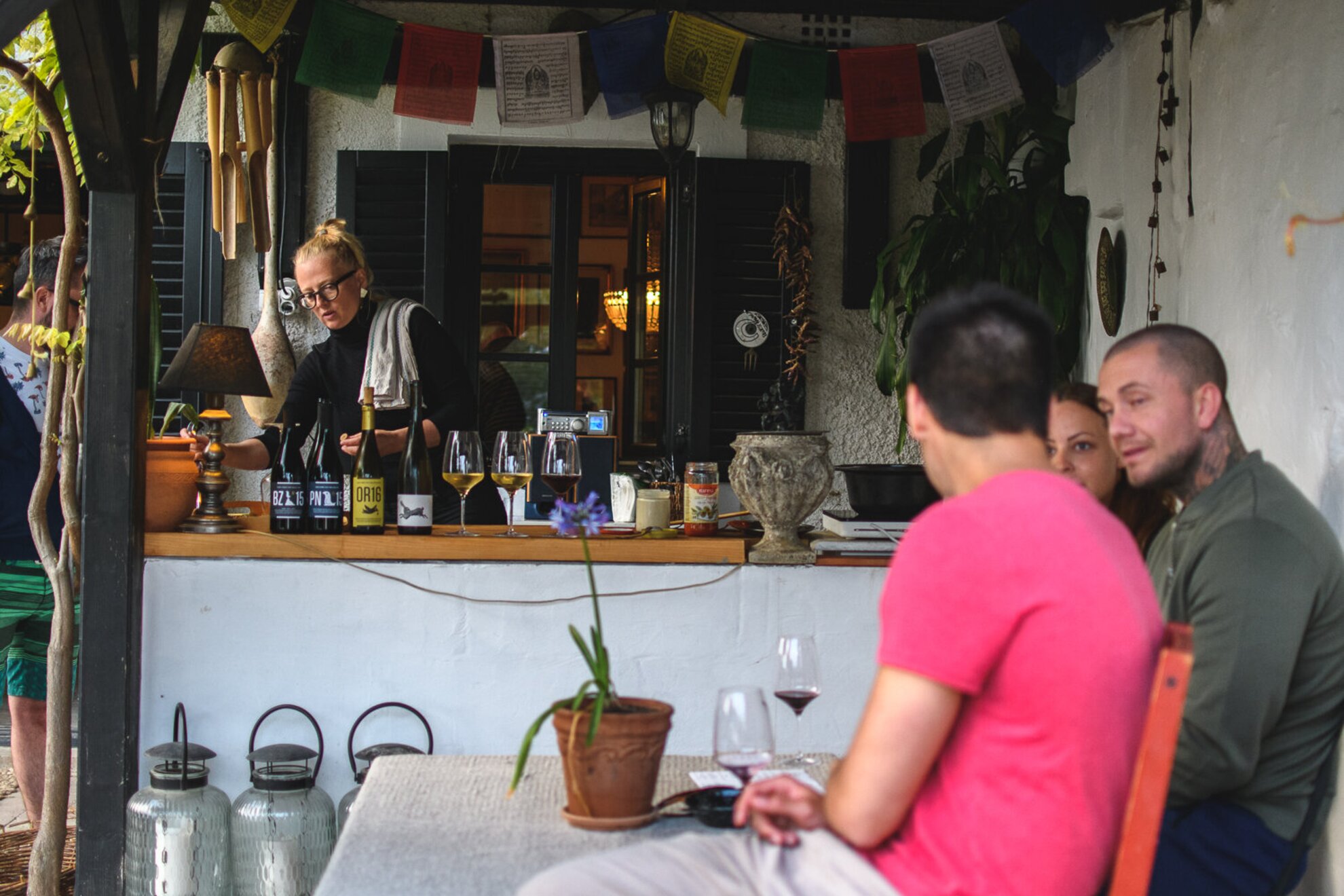
This is permaculture
They didn’t even consider Latvia as the weather there is bad and there aren’t enough opportunities. Karina suggested that they come to Hungary then. They climbed Szent György-hegy in -14 Celsius degrees and when they saw the dark, gloomy press house, their search was over. They moved in three months later. Many of their friends still don’t understand why. “How can you live like that, they ask, because our kitchen is «primitive», we don’t have a microwave, a dishwasher, or a TV. They don’t see the difference between two qualities of life,” says Karina, who, although misses her family, friends, and the sea, this is what she calls her home.
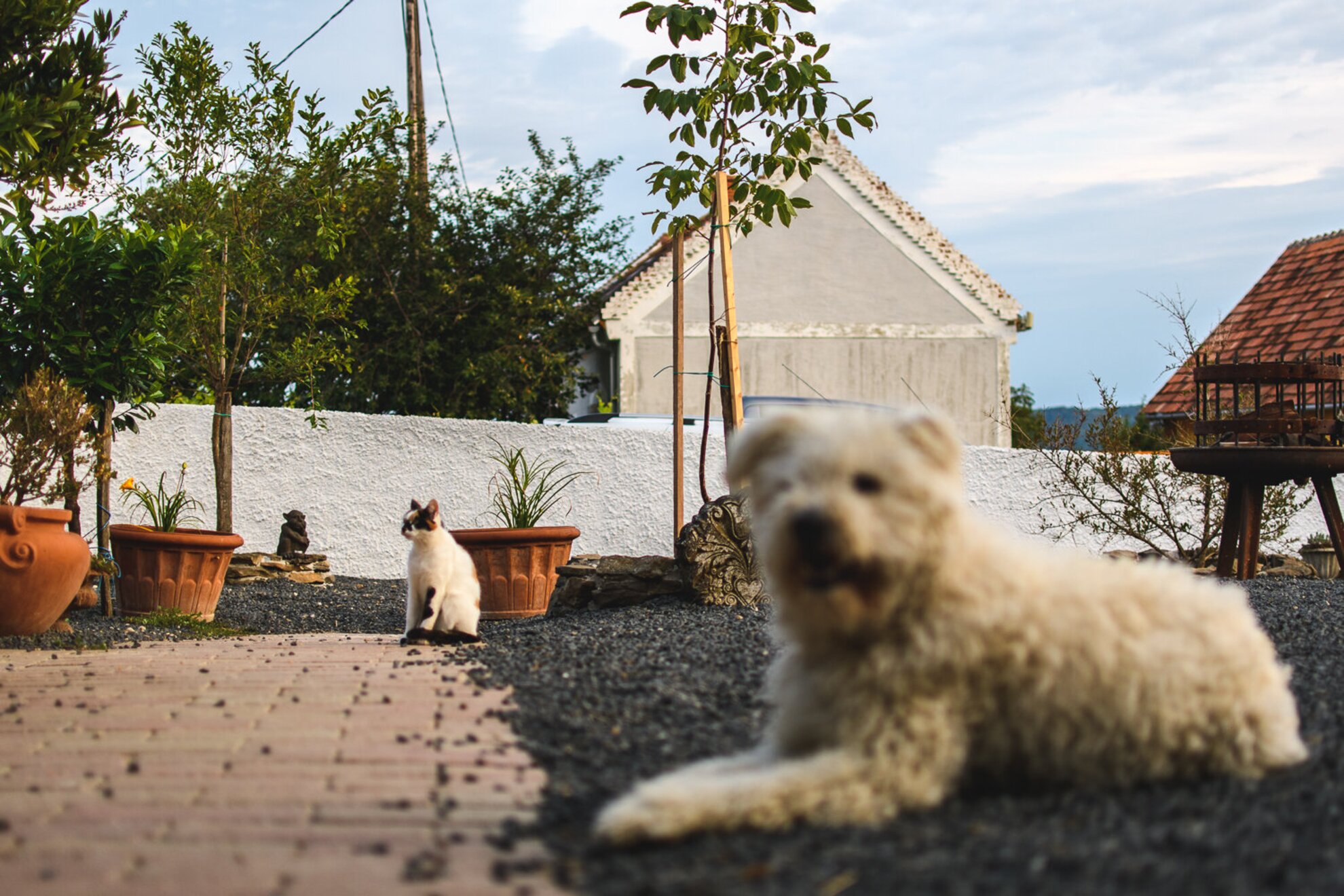
She wouldn’t leave her garden behind for anything. It’s lush and green, yet it has a system: this is permaculture; it’s based on the interaction between plants where human intervention is minimal. “I have self-reproducing tomatoes,” shows Karina while she laughs. She says that it wasn’t easy to wait for five years to see the artichoke bloom, but at least it’s very beautiful.
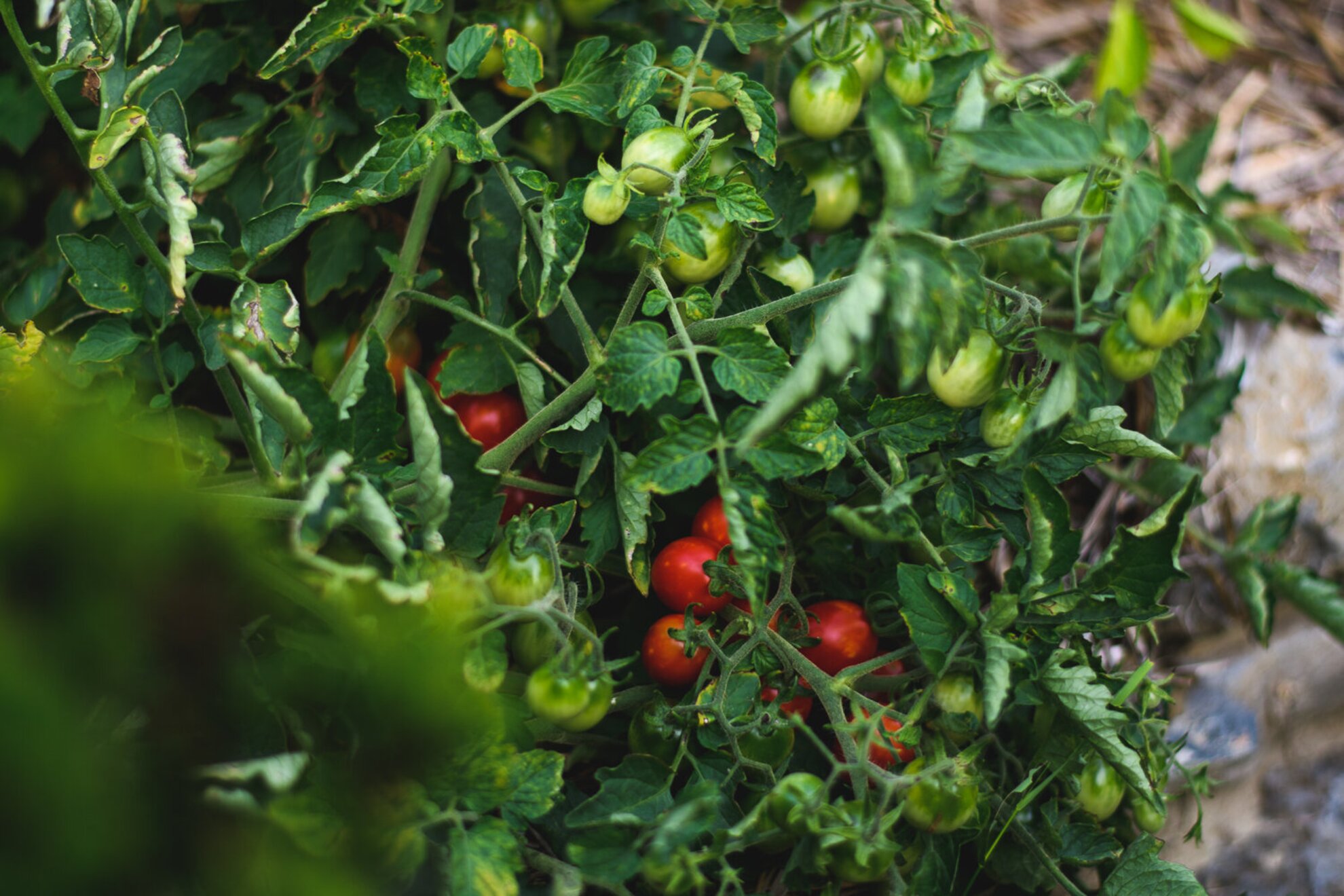
Among good friends
When the garden will be in hibernation, Karina will write a book about sustainable design and design theory, while Áron will fish and focus on his wines and records. He traveled the world as a DJ for decades, he woke up in Bangkok, and then in New York. Now he plays the music he wants, sometimes at Pláne Badacsony, sometimes at the annual Bohém Légyott of Gilvesy in July, or anywhere else where the fun is.
